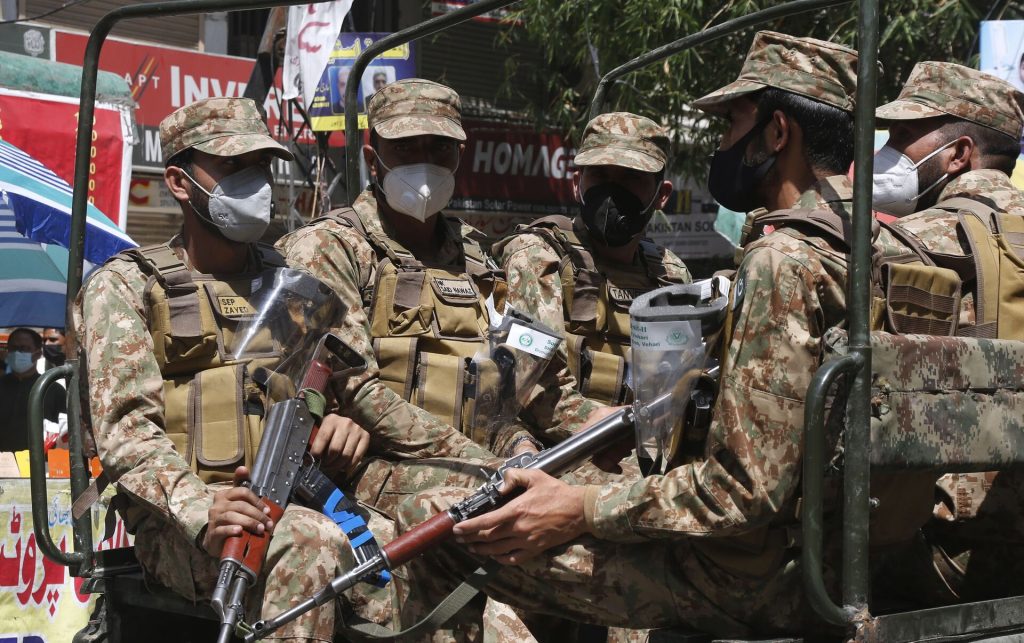According to media reports citing sources from the alternative Energy Development Board (AEDB), the Pakistan Army has purportedly decided to switch its Cantonments from a costly energy system to a less expensive Solar system. To resolve the country’s energy problem, the Army plans to self-consume electricity generated by solar power in its cantonments across the country.
Colonel Mansoor Mustafa, Director of General Works and Chief Engineer (Army), has notified the CEO of AEDB and several other senior officials that the Army wants to help end the current energy crisis by producing solar power energy.
The projects have already been given official permission with the aid of the National Electric Power Regulatory Authority (NEPRA), the State Bank of Pakistan, and the AEDB (SBP).
Successful bidders, such as M/s Solis Energy solutions, and M/s Foundation solar energy, were chosen by the Pakistan Army to receive the projects following a competitive bidding process.
A total of 54 MW worth of projects are currently being carried out by the Military Engineering Services (MES) at various cantonments around Pakistan, with some of these projects making more than 70% of their actual ground-level progress.
But suppliers are experiencing issues bringing in parts from outside, which has resulted in multiple projects being postponed for the past six months.
The General Headquarters (GHQ) has therefore asked the AEDB and other parties involved in the Prime Minister’s Initiative on “Clean and green energy” to align their vendors with the same facility offered by Build-Own-Operate-Transfer (BOOT) provides under the plan.
Through cleaner and less expensive solar electricity, they will be able to finish the Army’s unfinished projects.
To reduce electricity production costs, which are now too high for industrial, commercial, and residential consumers to afford, the government plans to build 10,000 MW worth of solar plants around the nation.
Army undertook a series of extensive studies/ in-house discussions to explore options to acquire cheap electricity to reduce the burden on the army budget. Renewable Energy (RE), solar power, which is being encouraged by the government stands out as the best option.
The Cabinet was informed that Pakistan has immense solar potential and Pakistan Army has a very robust/exclusive electric distribution system for all garrisons to harness RE through capital solar parks.
Army intends to establish solar park projects of 1-5MW each in various garrisons on Build-Operate & Transfer (BOT) basis. The pilot project is aimed at the production of 40MW of electricity. Private money will only be involved in the establishment of solar parks and their operation and maintenance for 25 years.
Defence Ministry claims that the purchase of electricity will be at least 20-30 percent cheaper than from Distribution Companies (Discos). However, government approval was required to make payments for the purchase of electricity to private companies/firms providing solar electricity.
Federal government buildings will soon switch to solar electricity as a result of a government decision. The nation’s power sector regulator, NEPRA, asserts that the power firms have neither increased recovery nor decreased losses, which has resulted in increasing electricity rates.
Also, the regulator has advised the government to privatize discos to send at least one disco to each province. Rashid Mehmood Langrial, the secretary of electricity, claims that the nation’s losses in the power industry exceed its annual defense expenditure.
Read More:





 A New Counter-Strike Game With Better Graphics And Matchmaking:Coming Soon
A New Counter-Strike Game With Better Graphics And Matchmaking:Coming Soon